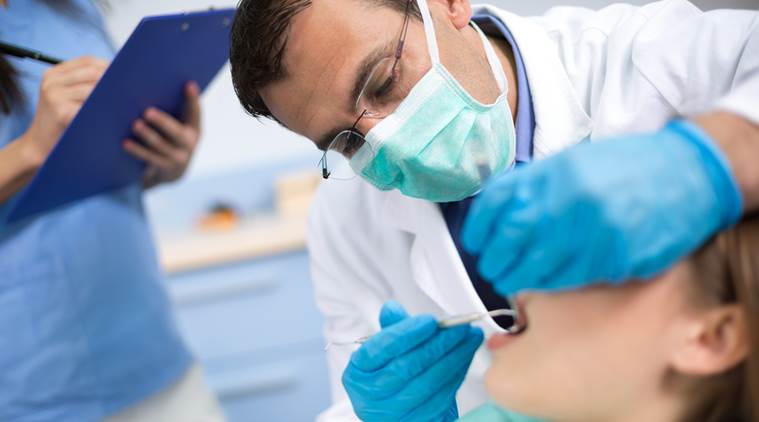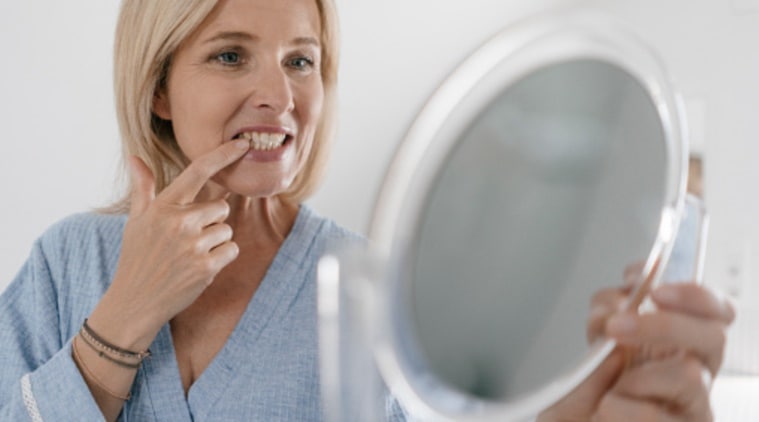Confusion, doubts, or myths on oral hygiene are part of any dentist’s daily routine. On this day, Dr. Anirban Chatterjee tries to bust some common ones

Maintaining one’s overall health is important to lead a healthy lifestyle, however, people tend to neglect their oral health. Amidst all of this dental practitioners are often asked about several oral concerns and even common misconceptions associated with them when it comes to oral hygiene.
Questions range from why one should floss if there is a brush available or aren’t children supposed to brush twice or will cola melt my teeth. Confusion, doubts, or myths on oral hygiene are part of any dentist’s daily routine and on this ‘World Oral Health Day’ Dr. Anirban Chatterjee, Periodontist and Implantologist, President-Elect of Indian Society of Periodontology shares some interesting insights with us:
Myth 1: Brushing one’s teeth is enough for good oral health
It is often believed that brushing twice means one is adhering to good oral hygiene practices. However, no matter how efficiently brushing is done, it cannot clean the entire mouth as teeth constitute only 25% of one’s mouth. To ensure that the entire mouth is clean, rinsing with mouthwash daily after brushing is equally important to remove leftover germs that cause major oral health problems like tooth decay, bad breath and gum problems.
Using a mouthwash with essential oils will help to clean the whole mouth of leftover germs from under the tongue, the roof of the mouth, and between the cheeks. But be mindful, do not gargle the mouthwash. It is best to use the mouthwash as per the manufacturer’s guidelines.

Myth 2: Mouthwash only settles bad breath
One of the most common myth is that mouthwash only resolves bad breath. People are always under the impression that mouthwash can be a quick fix and can also replace brushing to overcome bad breath. However, that is not the case, a mouthwash not only helps to overcome bad breath but also get rid of leftover germs in the mouth which usually are not cleaned even after brushing. These germs are the root cause of bad breath and lead to plaque which can cause the breaking down of teeth over time and even gingivitis or gum problems.
Do not replace brushing by using mouthwash, instead add that to the daily oral hygiene routine. Mouthwash containing essential oils can help to prevent cavities and reduce bacteria-causing plaque. Therefore mouthwash is much more than just a solution to address bad breath, it is an important part of one’s overall oral hygiene.
Myth 3: Hard toothbrushes are better
This is a highly prevalent misconception. Toothbrushes with hard bristles followed by harsh brushing can damage the tooth enamel. On the other hand, softer bristles are a better option as they are less abrasive to the teeth and gums, but the best option is using a medium toothbrush. However having the right toothbrush, an excellent brushing technique and brushing twice is not enough. An overall good oral hygiene regime is important to ensure the cleaning of the whole mouth.
Myth 4: Brushing longer makes the teeth shine
Brushing too much, too frequently can cause abrasion of the enamel the outermost layer of the teeth. The recommended time to brushing is just two minutes, which is just enough for the fluoride in the toothpaste to react with the teeth and make it clean and should brush twice a day, not more than twice. To get whiter teeth one should visit a dentist, as it is a cosmetic process.

Myth 5: One need to visit a dentist only during an Emergency
The perception of dental treatment to be painful often leads people to avoid regular dental check-ups. Many of the oral issues are asymptomatic and hence, a regular dental visit at least every six months is always recommended.
Myth 6: One should use mouthwash only when they have oral problems
A common misconception regarding mouthwash is that one should use it only when they have issues like bad breath, swollen gums, or cavities. This however is not true, using mouthwash twice daily and making it a routine will help to prevent several oral hygiene problems.
Myth 7: Flossing regularly will lead to gaps between the teeth
There are many myths and misconceptions around flossing. While some people think that flossing creates a gap between teeth others think flossing is important to avoid future oral health problems and is unnecessary as a routine. The fact is, flossing is considered to be the correct way to clean in between the teeth.
It helps to remove food residue, plaque build-up between the teeth and reach places that are difficult for a toothbrush. Regular flossing along with other oral care is necessary for gum health and will make one less likely to develop cavities in the long run. Don’t forget to rinse after flossing.
Myth 8: Professional cleaning weakens the tooth
It is mistakenly believed that scaling – in common terms known as cleaning of teeth — can weaken one’s teeth. It is a common reason for patients to avoid this procedure. However, in order to control the tartar forming on the teeth, scaling is required. The process uses ultrasonic instruments that only remove the tartar. After the process, regular use of essential oil-based mouthwash can help to control the formation of tartar around the teeth.
Source: Read Full Article
